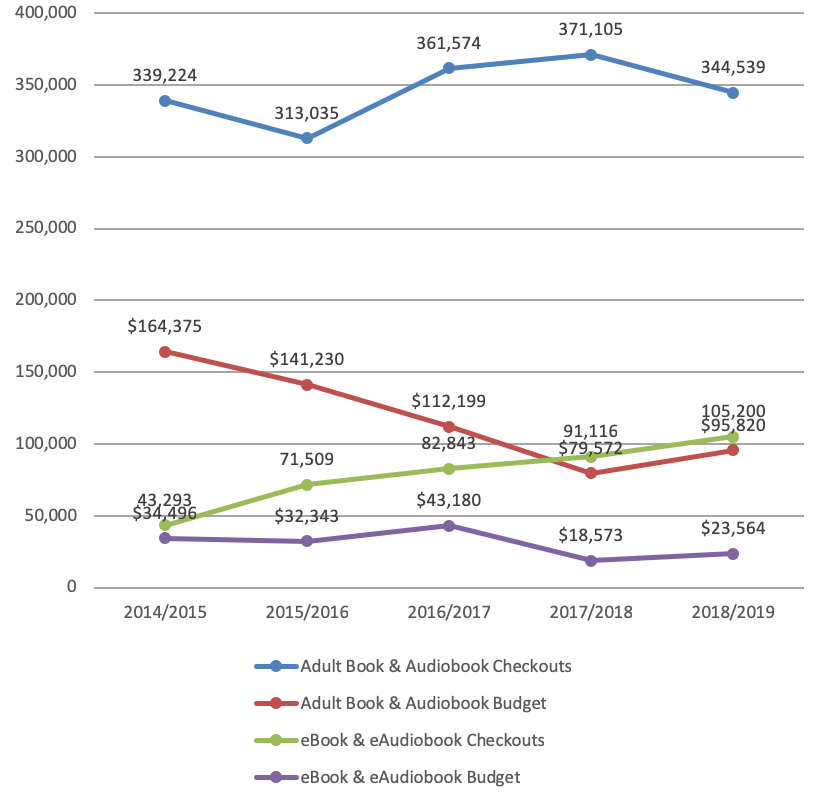Recent decisions by publishers are impacting the Library’s ability to meet customer demand for eBooks.
When major publishers sell eBooks to libraries, each has its own licensing terms. Some allow perpetual access to purchased copies but charge a higher amount for each purchased copy. Some charge less per copy, but limit how many times a copy can circulate or how long the library owns that copy. For example, HarperCollins eBooks are permitted to circulate 26 times then need to be repurchased. Most of the major publishers do not license eBooks to the library eBook vendors who use newer business models, like Hoopla, which uses a pay-per-use model.
An announcement made by Macmillan Publishers in July imposes even more restrictions on library eBook lending. Beginning on November 1, a library may purchase only a single copy of each new title in eBook format upon release, after which Macmillan will impose an eight-week embargo on additional copies of that title sold to libraries. The new lending model expands Macmillan Publishers’ current policy that their eBooks can circulate 52 times or can be in the collection for 2 years then must be repurchased.
Ever since eBook services became available to libraries, the Palo Alto City Library has been exploring effective ways to offer access to meet customers’ increasing demand. We are a member of the OverDrive Northern California Digital Library (NCDL), a consortium of 14 Northern California libraries to purchase eBooks, providing Palo Alto customers a collection that is larger in size than that we may afford alone. To meet demand and shorten wait times on the most popular titles, we use OverDrive NCDL’s Advantage program to add additional copies and/or titles that are only available to our customers. We also provide access to eBooks through Axis 360 and other vendors to broaden the variety. The borrowing rate has been steadily increasing over the years, as shown in Figure 1.
 Due to budget considerations, we maintain a holds-to-copies ratio to minimize wait times for popular titles. Currently, our ratio is 5:1. Any change to eBook lending made by publishers will significantly increase customer wait times. Consider the recent Macmillan publication, Moment of Lift by Melinda Gates, as an example. The Library purchased four copies with 47 individuals on the waiting list. If we had only one copy to begin with, and with an eight-week embargo, customers would need to wait much longer for that book.
Due to budget considerations, we maintain a holds-to-copies ratio to minimize wait times for popular titles. Currently, our ratio is 5:1. Any change to eBook lending made by publishers will significantly increase customer wait times. Consider the recent Macmillan publication, Moment of Lift by Melinda Gates, as an example. The Library purchased four copies with 47 individuals on the waiting list. If we had only one copy to begin with, and with an eight-week embargo, customers would need to wait much longer for that book.
Since the Wall Street Journal article was published about Macmillan’s new lending model, the American Library Association and Public Library Association denounced it. Urban Library Council and Canadian libraries have also joined forces to investigate ways to push back on this model. All of them have urged library customers to voice objections. With its resources, the Palo Alto City Library has been able to meet its customer eBook needs. However, the continuous changes to the library eBook lending model must put both the Library and its customers on the alert.
We wanted our customers to understand this new reality.
